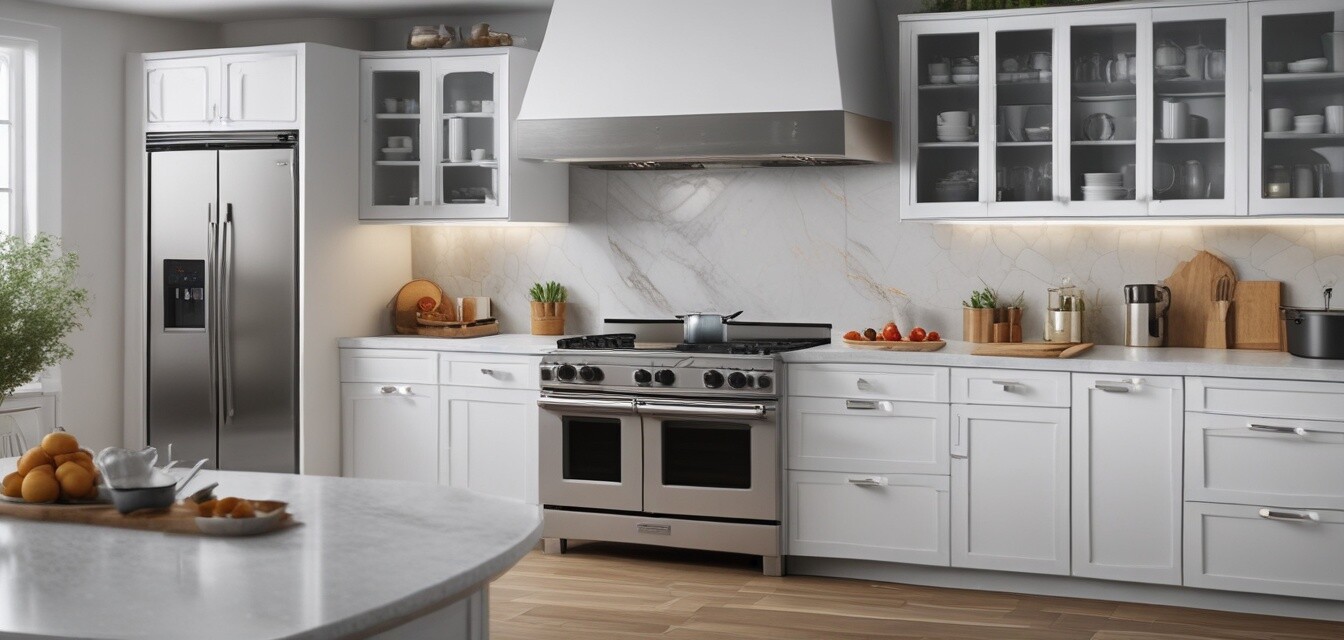
Advances in Smart Cooking Technologies
Key Takeaways
- Smart cooking technologies are revolutionizing kitchens with efficiency and convenience.
- Integration of Bluetooth and IoT in appliances enhances user experiences.
- Innovations include intelligent cooktops, smart ovens, and touchless faucets to minimize effort and maximize efficiency.
- Understanding these advancements helps homeowners stay updated and choose the best appliances for their needs.
The kitchen is rapidly becoming a hub of high-tech innovation, allowing for smarter, more efficient cooking experiences. As technology continues to evolve, so does the realm of kitchen appliances. In this article, we will delve into the latest advances in smart cooking technologies and explore how these innovations are transforming the way we prepare meals. From Bluetooth-enabled devices to intelligent cooktops, the changes in this sector are significant and exciting.
What are smart cooking technologies?
Smart cooking technologies refer to appliances that are integrated with advanced features, enabling them to connect to the internet and communicate with other devices. These technologies utilize IoT (Internet of Things) systems, Bluetooth connections, and smart sensors to simplify cooking processes for users.
Benefits of smart cooking appliances
Investing in smart cooking appliances comes with numerous advantages:
- Enhanced convenience: Many smart appliances automate time-consuming tasks, allowing users to spend less time in the kitchen.
- Better connectivity: Integration with smartphones enables monitoring and controlling of appliances remotely.
- Energy efficiency: Smart appliances often consume less energy than traditional ones, leading to cost savings on utility bills.
- Customizable settings: Users can tailor cooking settings, adapting to various recipes and personal preferences.
- Improved safety: Many smart kitchen devices include safety features that alert users in case of malfunctions.
Noteworthy advancements in smart cooking technologies
Let's take a closer look at some remarkable advancements that have emerged in recent years:
| Appliance Type | Features | User Benefits |
|---|---|---|
| Smart Ovens | Wi-Fi connectivity, app-controlled cooking, self-cleaning | Automated cooking, precise temperature control, and hassle-free maintenance |
| Intelligent Cooktops | Touch controls, sensor-based cooking, efficient heat distribution | Faster cooking times, energy efficiency, and user-friendly interface |
| Bluetooth-Enabled Appliances | Remote access, integration with various apps, notifications | Convenient cooking management and enhanced monitoring |
| Touchless Faucets | Motion sensors, easily adjustable water temperature | Reduced mess, water conservation, and improved hygiene |
| Smart Refrigerators | Inventory management, energy-efficient cooling, touchscreen interface | Less food waste, budget-friendly grocery shopping, and ease of use |
Trends shaping the future of smart kitchens
As technology evolves, so do the trends in the kitchen appliance market. Some key trends to keep an eye on include:
- Sustainability: Many manufacturers are focusing on energy-efficient and eco-friendly appliances, reducing their environmental impact.
- Integration with AI: Appliances are increasingly using artificial intelligence to provide personalized recommendations and automate cooking processes.
- Voice-Controlled Devices: Integration with voice assistants is becoming standard, allowing users to operate appliances hands-free.
- Health-Oriented Features: Many smart appliances now include functions to help users prepare healthier meals, making cooking more nutritious.
Conclusion
With the constant influx of innovative technologies, the smart cooking appliance sector is continuously evolving. Homeowners should consider how these advancements can enhance their cooking experience and bring efficiency into their kitchens. As we embrace this new era of kitchen technology, it is crucial to stay informed about the latest trends and innovations. For more information on specific products in this category, explore our smart kitchen buying guides or check out new kitchen technology news for updates.
Pros
- Enhanced convenience and efficiency
- Better control through connectivity to devices
- Energy savings and reduced utility costs
- Customization for varied cooking needs
Cons
- Initial investment can be high
- Potential for technical issues or maintenance challenges
- Learning curve associated with new technologies
Tips for beginners
- Start by integrating one smart appliance and get comfortable with its functionalities before expanding.
- Read user manuals thoroughly to understand features and settings.
- Stay updated with firmware updates for optimal performance and security.
- Use smartphone apps that come with smart appliances for enhanced control and monitoring.